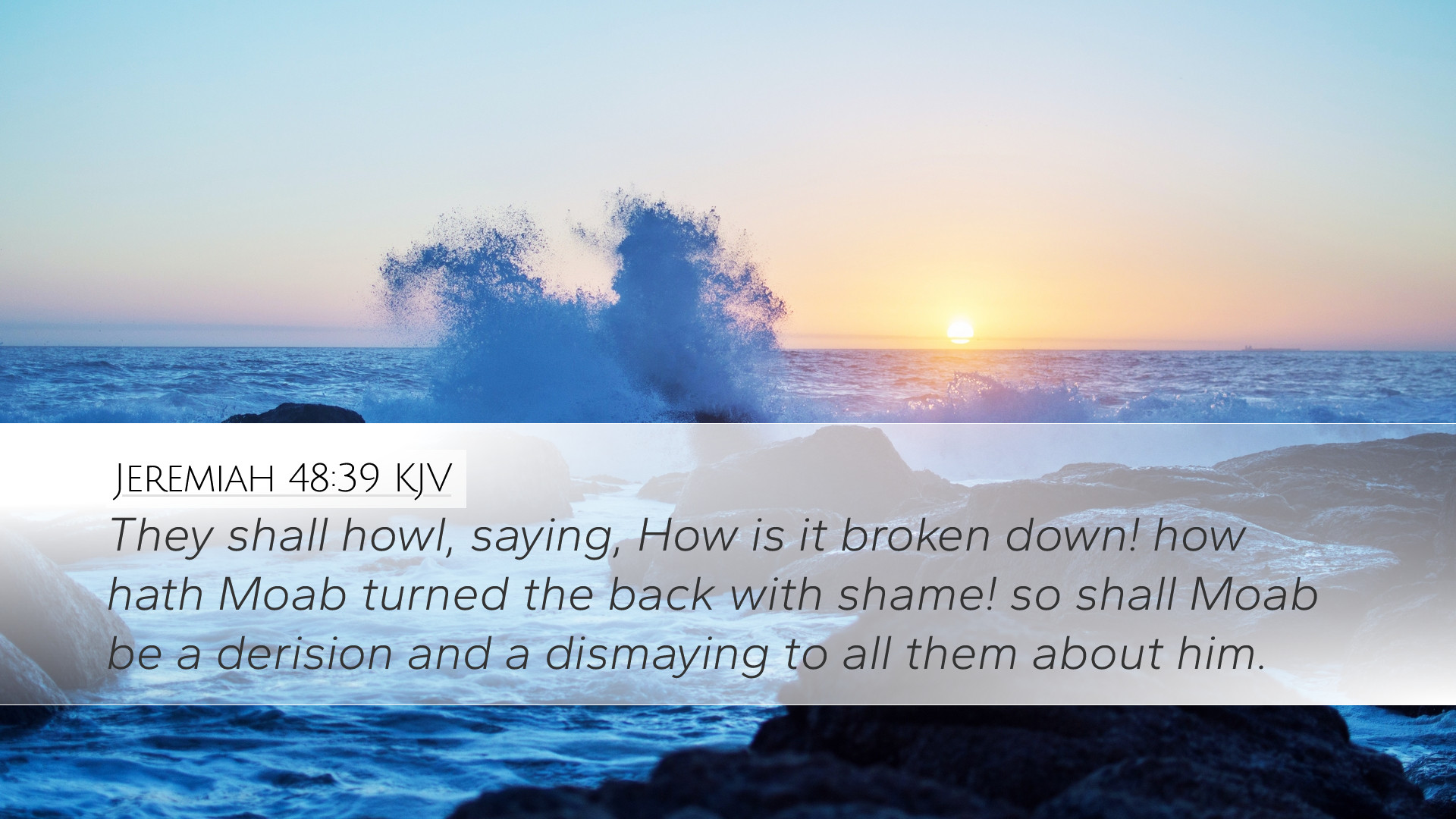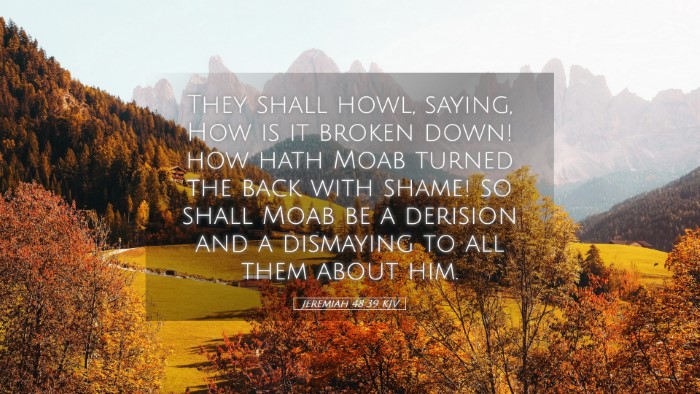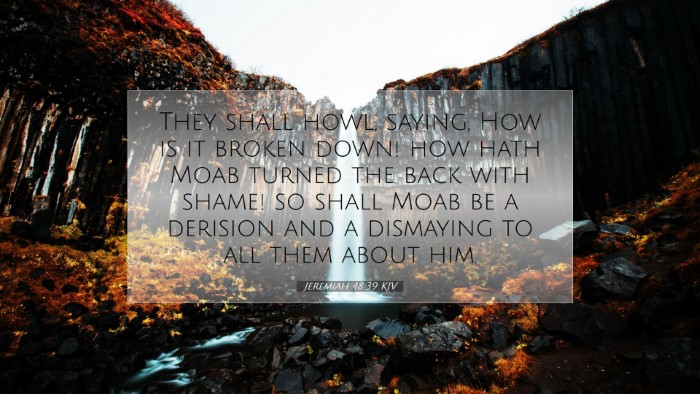Commentary on Jeremiah 48:39
Jeremiah 48:39 states: "They shall howl, saying, How is it broken down! How hath Moab turned the back with shame!" This verse captures a moment of mourning for Moab, signifying not just a physical defeat but a deeper existential crisis for the nation.
Overview of Moab's Significance
The historical context of Moab is critical for understanding this lament. Moab was a neighboring nation to Israel, often in conflict with it. The Moabites, descendants of Lot, had a complicated relationship with the Israelites, steeped in animosity and rivalry. The prophetic message in Jeremiah brings to light the impending judgment that would fall upon Moab due to its idolatry and pride.
Insights from Public Domain Commentaries
Matthew Henry's Commentary
Henry emphasizes the gravity of Moab’s judgment. He interprets the howling mentioned in this verse as a natural response to catastrophic loss. The cries reflect not just grief but the shame associated with defeat. He notes that this lamentation serves as a deadening realization for the Moabites: their hopes are dashed, and their pride has led them to ruin.
- Shame of Defeat: The shame of this defeat is a central theme; Moab's identity as a proud nation is irreparably damaged.
- Consequences of Idolatry: Henry underscores that the judgment was a consequence of their persistent idolatry and rebellion against God.
Albert Barnes' Notes on the Bible
Barnes provides a detailed analysis of the expressions used in this verse, indicating that the howl signifies not merely a vocal expression of grief but a deep-seated despair. Moab’s "turning the back" indicates a retreat, both in a military sense and as a symbol of moral and spiritual withdrawal from the covenant with God.
- Moral Implications: Barnes highlights that the mourning expresses Moab's realization of its moral and spiritual failings.
- God’s Sovereignty: He also notes the overarching theme of God’s sovereignty in the destruction of nations that oppose Him.
Adam Clarke's Commentary
Clarke’s exposition involves an examination of the cultural ramifications of Moab's downfall. He connects the prophecy to historical fulfillments, noting the reasons for the nation’s eventual subjugation and the psychological torment it would endure. Clarke emphasizes Moab's reliance on human strength rather than divine support, leading to ultimate collapse.
- Historical Fulfillment: Clarke argues for the fulfillment of this prophecy in historical events where Moab faced conquest and its subsequent loss of national identity.
- Human Fallibility: He points out the folly of trusting in human might, which ultimately leads to disappointment when faced with God's will.
Theological Reflections
This passage offers rich grounds for theological reflection for pastors and theologians. The lamentation serves as a stark reminder of the consequences of turning away from God and the inevitable downfall that accompanies pride and idolatry.
- Warnings Against Idolatry: The verses provide a cautionary tale about the danger of placing one’s trust in worldly things rather than in God.
- The Role of Prophecy: The prophetic word serves not only to declare destruction but also a call towards repentance.
Applications for Today
For modern-day readers, especially students and scholars, this verse invites deep introspection. It challenges individuals and communities alike to evaluate the elements of pride and idolatry present in contemporary society.
- Personal Reflection: Encourage self-examination on reliance upon worldly measures of success as opposed to spiritual fidelity.
- Community Awareness: Highlight the importance of collective moral integrity within communities, ensuring alignment with divine principles.
Conclusion
Jeremiah 48:39 encapsulates a profound moment of despair for Moab, steeped in the themes of judgment, shame, and the perils of pride. Through the insights from revered commentaries, it is evident that the text carries significant implications for both the historical context of Israel and the ongoing spiritual narrative for believers today. The call remains for introspection, humility, and a return to faithfulness in pursuing God.


